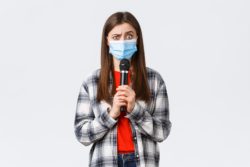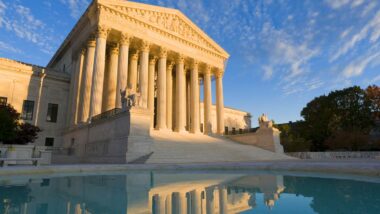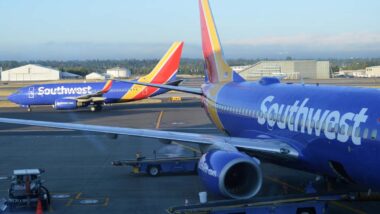Top Class Actions’s website and social media posts use affiliate links. If you make a purchase using such links, we may receive a commission, but it will not result in any additional charges to you. Please review our Affiliate Link Disclosure for more information.
A Las Vegas karaoke bar has filed a lawsuit against Nevada’s COVID-19 task force and others, seeking a restraining order that would allow the bar to reopen.
Cat’s Meow of Las Vegas filed its complaint in federal court last week, claiming the COVID-19 mitigation restrictions put in place by the city and state unfairly target nightclubs when similar businesses have been allowed to reopen.
According to News3LV, the local NBC affiliate, the owners of the downtown bar argue the current guidance on closures — part of the state’s “Roadmap to Recovery” reopening plan — are discriminatory when it comes to karaoke bars, but not karaoke venues.
Because Cat’s Meow is required to hold a “nightclub” license, the state guidance says the karaoke bar is not allowed to reopen, News3LV reported.
Cat’s Meow also operates a location in New Orleans, according to Eater.
The list of defendants touches nearly every corner of government in Nevada: the state’s COVID-19 task force, Gov. Steve Sisolak, Attorney General Aaron Ford, Nevada Secretary of State Barbara Cegavske, the city of Las Vegas, Las Vegas Mayor Carolyn Goodman, Las Vegas Department of Public Planning and director Robert Summerfield, and COVID-19 task force response director Caleb Cage.
Due to the coronavirus pandemic, Sisolak declared a state of emergency in Nevada on March 12, according to the karaoke bar lawsuit. Five days later, he announced the steps the state would take to try to stop the rampant spread of the pandemic, including the closure of nonessential businesses.
On March 20, the governor issued “Emergency Regulations” to distinguish between essential and nonessential businesses, the lawsuit states. Among the businesses defined as nonessential were live entertainment venues, restaurants with only in-house dining options, bars, nightclubs, and others.
Sisolak unveiled the state’s reopening plan in late April, revising it days later to permit restaurants and bars licensed to serve food to provide on-site dining as long as social distancing could be maintained, the karaoke bar lawsuit says. Nightclubs and entertainment venues were not allowed to open at that point.
At the end of May, more businesses were allowed to reopen, including bars and breweries not licensed to serve food.
But nightclubs still were not allowed to reopen, the lawsuit states.
The state’s COVID-19 Mitigation and Management Task Force was established in August, at the same time a new recovery plan was put in place. Sisolak delegated the authority to enforce the provisions of the new plan to the task force, according to the karaoke bar lawsuit.
In September, under the new guidance, Sisolak issued an order that “did not supercede the prohibition on nightclubs opening found” in one of his previous orders, and “specifically excluded from the prohibition ‘ambient music to create or enhance a mood or atmosphere that is incidental or ancillary to the activity or location.’”

After the second citation, on July 12, the karaoke bar closed once again.
Cat’s Meow argues it has been in full compliance with the Centers for Disease Control and Prevention guidance on COVID-19 risk reduction, including social distancing, encouraging patrons to remain seated when possible and requiring face masks.
The karaoke bar claims its First and 14th amendment rights are being violated.
It calls the governor’s orders “unconstitutionally vague and ambiguous,” as well as “impermissibly and substantially overbroad judged in relation to their plainly legitimate sweep.”
The plaintiff also maintains the orders violate the Nevada Constitution in many respects, saying they “single out protected businesses and prevent them from reopening without justification.”
Cat’s Meow also argues the orders infringe upon an individual’s “right to earn profit from protected speech, expression, and association.”
The karaoke bar is seeking a declaration that the orders and nightclub regulation are unconstitutional, as well as a temporary restraining order to stop the defendants from enforcing the orders.
In addition, the plaintiff seeks an order allowing the Cat’s Meow karaoke bar “to operate in accord with restrictions placed on similar businesses;” an award of nominal damages; an award of court costs and attorneys’ fees; and any other relief deemed appropriate.
Do you think a karaoke bar should be allowed to reopen at this point in the pandemic? Tell us your thoughts in the comments below.
The plaintiff is represented by Deanna L. Forbush and Colleen E. McCarty of Fox Rothschild LLP, and Matthew J. Hoffer and Zachary M. Youngsma of Shafter & Associates PC.
The Cat’s Meow Karaoke Bar Reopening Lawsuit is Cat’s Meow of Las Vegas LLC v. State of Nevada, et al., Case No. 2:20-cv-02055, in the U.S. District Court for the District of Nevada.
Coronavirus Lawsuits & Legal Issues
Since the COVID pandemic shut down the country, Top Class Actions has been keeping you up to date on the latest Coronavirus lawsuits and legal issues.
ATTORNEY ADVERTISING
Top Class Actions is a Proud Member of the American Bar Association
LEGAL INFORMATION IS NOT LEGAL ADVICE
Top Class Actions Legal Statement
©2008 – 2024 Top Class Actions® LLC
Various Trademarks held by their respective owners
This website is not intended for viewing or usage by European Union citizens.















